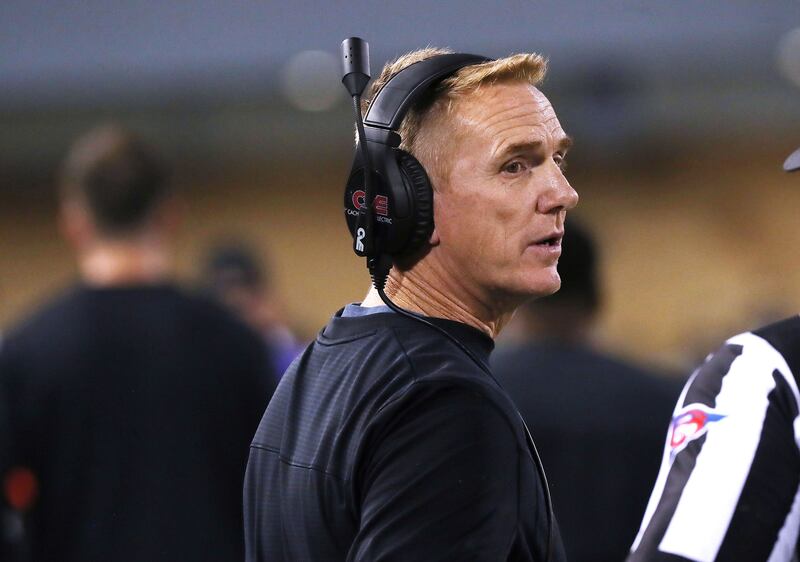It’s been one year since Utah State football coach Blake Anderson lost his son, Cason, to suicide. Anderson marked the anniversary Tuesday by encouraging people who are hurting to reach out for help.
“Depression & suicide ARE REAL. If you are hurting please reach out for help NOW. ... Dial 988,” the coach tweeted, referencing the national mental health crisis hotline.
Anderson’s tweet also included a message to his son, who died by suicide in February 2022 at the age of 21.
“1 year ago today You left us. You took your own life & there is nothing we can do to ever change it. Memories, questions, grief, and tears are all we are left with. We miss you dearly,” Anderson said.
Over the past 12 months, Anderson has worked with the Utah State football program to channel his family’s pain into initiatives aimed at helping others.
In September, Utah State Athletics announced a mental health and wellness fund created in Cason Anderson’s honor, which will boost counseling services available to Aggie athletes, coaches and support staff, as the Deseret News previously reported.
That same month, Utah State football dedicated a game against UNLV to the cause of mental health awareness. Players on each team wore green ribbon stickers on their helmets in recognition of Suicide Prevention Awareness Month.
In the lead-up to the game, Anderson addressed his son’s suicide publicly for the first time, noting that the heartbreaking experience had taught him the importance of giving people the space to open up and the importance of helping them access mental health resources.
“Anderson said he grew up as an athlete in a time when ‘as a man, you didn’t show that you were hurting. ... Unfortunately, I probably spent most of my life as a father and as a coach probably teaching my kids the same way,’” the Deseret News reported in a story about Anderson’s September remarks.
Anderson has repeatedly encouraged Utah State fans to get involved in the school’s mental health-related efforts and to do their part to keep loved ones safe.
“We want to offer support to anybody that might be watching (and to) anybody who might be dealing with the effects of mental health in their family,” he said in September.


